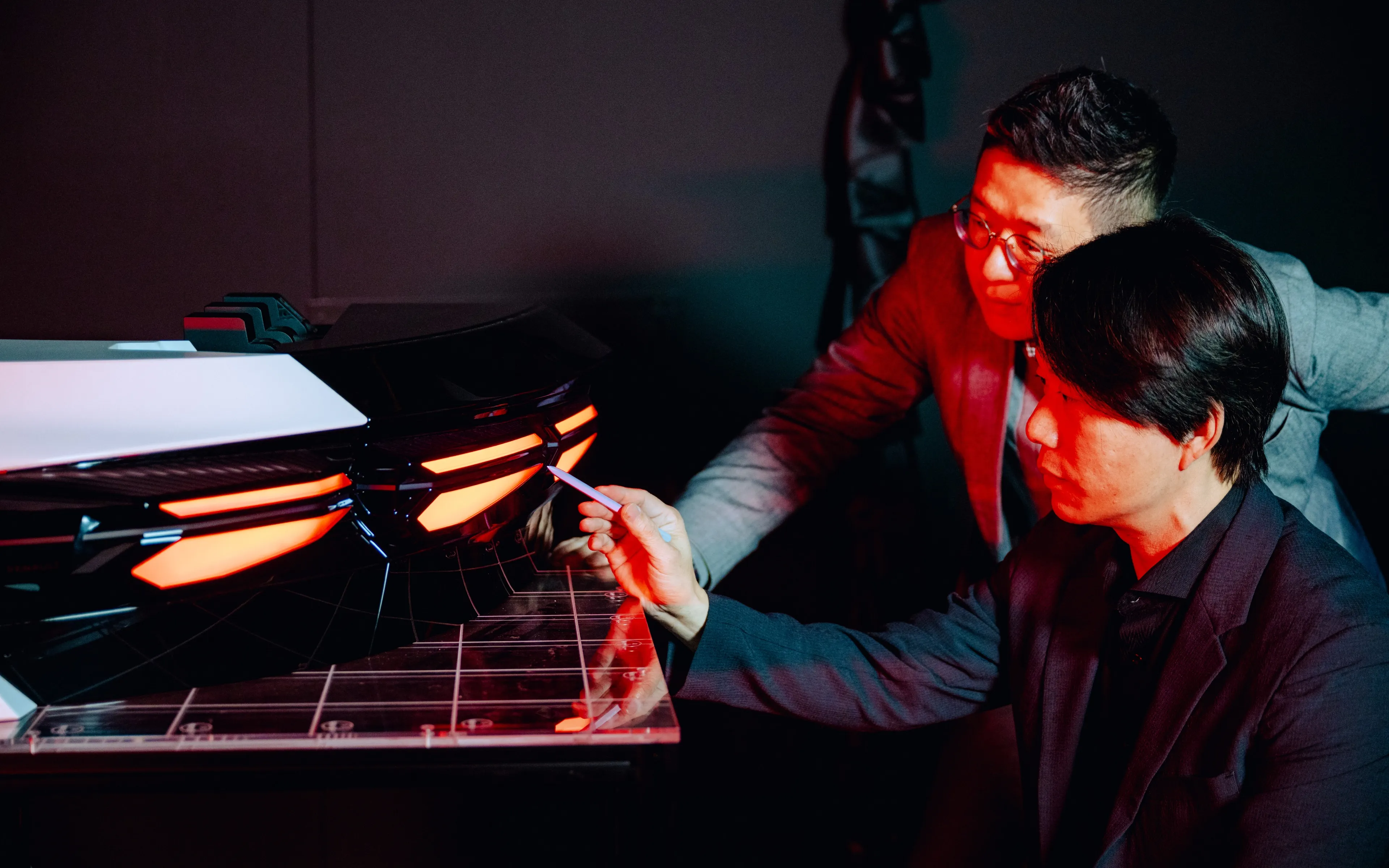Why we must reinvent Corporate Universities, and fast.
Published on

« Faced with the fast-paced transformation of the automotive sector, technological disruptions, the growing use of AI and the necessary energy transition, revolutionizing continuing training to guarantee the employability of our employees is fundamental. »
ReKnow University has risen to the challenge, as Patrick Benammar, VP Learning & Development, Renault Group, explains.
BY RENAULT GROUP
The fast-paced acceleration of the automotive sector
A few months ago, during a workshop in a ReKnow University campus, I asked a group of young engineers a simple question: “What will your job look like in five years?”
Someone said, “I honestly don’t know. I just hope I’ll still be useful.”
That sentence has stayed with me. Because it reflects the very heart of what we’re facing: a new industrial age that is moving faster than we can train for it. Electrification, circular economy, Data & AI, cybersecurity — the transformation is sweeping and relentless. And while technology sprints ahead, our skills (and the systems meant to develop them) are struggling to keep pace.
We’re not just talking about upgrading a few training modules. We need a deep reinvention of the way we learn in industry.
Two transitions, one urgent transformation
The industrial world stands at a crossroads. On one side: the race to decarbonize by 2050, a shift as massive as it is non-negotiable. On the other hand, the disruption brought by automation, AI and data, rapidly eliminating tasks with low human added value.
It’s a revolution, and not just in what we produce, but in how we work, what we need to know, and who we need to become. Traditional job paths are no longer linear. Roles evolve or vanish. Others, like battery repair technicians, or vehicle retrofit operators, are born out of necessity.
Yet the education system can’t anticipate fast enough. And corporate training, as we knew it, isn’t built for this pace or this level of transformation.
Rethinking the “how” of learning
Back in the late 1980s, technical skills had an average shelf life of 30 years. Today? Just two.
The OECD predicts that over 25 million jobs in Europe will be impacted by the twin transitions. Millions of people will need to be reskilled. Not in five years, but now.
We need new answers to old questions:
- How do we prepare young people for jobs that don’t yet exist?
- How do we support mid-career professionals to stay employable for longer?
- How do we turn lifelong learning from a buzzword into a reflex?
The answer, I believe, lies in reinventing corporate universities, not as ivory towers, but as agile, open ecosystems designed to evolve at the speed of business.
From the classroom to the ecosystem
There are more than 4,000 corporate universities around the world. Many of them were created to pass on culture, leadership and values. Some became landmarks, like GE’s Crotonville. Others evolved into sector-wide academies, like Airbus or Alstom. But today, that model isn’t enough.
We must move beyond the company walls. Learning needs to be co-designed with others: public institutions, startups, universities, competitors even. We must accept that the major challenges ahead, sustainability, competitiveness, and inclusion, are too big to tackle alone.
It’s not easy. It takes courage to invest together, to learn side-by-side with others, to unlearn old habits. But that’s exactly what we’re doing at Renault Group with ReKnow University.
ReKnow University: a new kind of university
When we launched ReKnow University in 2021, we didn’t want to create just another internal training program. We wanted to create an open platform for transformation, built around skills that will shape the future of mobility: electrification, Data & AI, circular economy, software & cybersecurity.
Since then, more than 40,000 employees at Renault Group have already benefited from ReKnow University’s programs. But we have also co-developed content with leading academic partners. We have opened courses outside of the company. We have tested multiple formats: long, short, hybrid, practical. Yes we train, we certify, and we adjust permanently.
Because the goal is not just to deliver knowledge. It’s to give people the means to reinvent themselves and the confidence to do so.

Anchored in the real world
One of the most powerful examples of this vision is what’s happening at Refactory in Flins.
Just a few years ago, this site was assembling traditional combustion engines vehicles. Today, it’s Europe’s flagship for circular mobility. And what is the first building you see? A training campus.
Here, we’re helping employees transition to brand-new jobs: from dismantling to battery diagnostics, from retrofitting to recycling. But we’re also training students and jobseekers, because the factory of tomorrow won’t run without them.
It’s a model deeply rooted in the region, serving local needs, creating local value, and opening up real, tangible opportunities for people of all backgrounds.
A movement in motion
We’re only at the beginning of this transformation. But one thing is certain: if we want to stay competitive, inclusive and future-ready, we need to rethink how we learn, together.
Corporate universities must evolve from being content providers to skill enablers. From internal academies to territorial platforms. From guardians of culture to catalysts of change.
Because in this new industrial era, the real power won’t lie in knowing.
It will lie in learning faster and learning together.
ReKnow University goes global
Encouraged by the success of ReKnow University in France, Renault Group decided to develop the model internationally. Campuses have been set up in Turkey, Spain and, more recently, Argentina and Brazil. New campuses are also expected to open this year in Romania, India and Morocco.
![]()
Josep Maria Recasens, Renault Group Strategy Director, at the inauguration of ReKnow University in Spain in May 2024.


